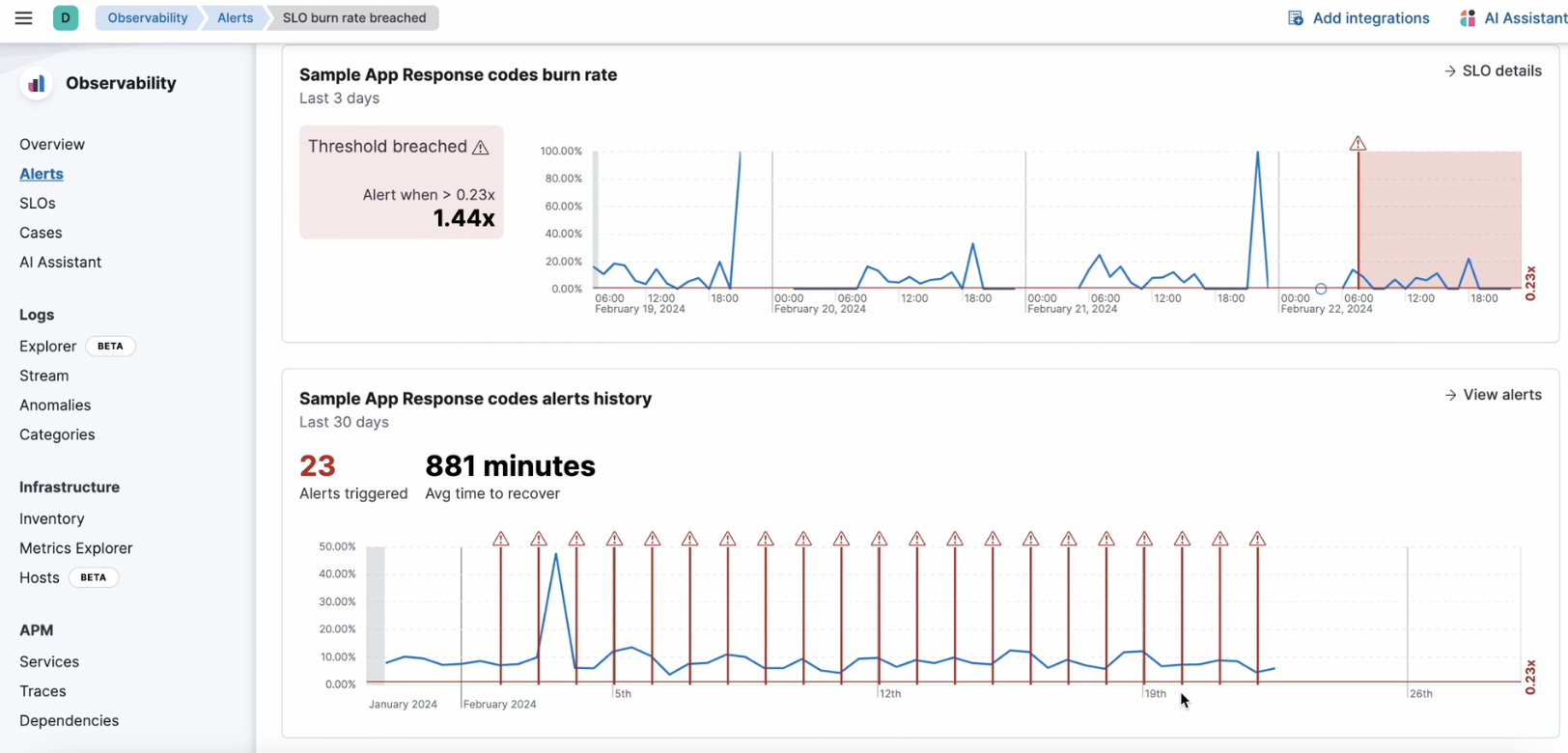What’s new in 8.13
editWhat’s new in 8.13
editHere are the highlights of what’s new and improved in 8.13.
Other versions: 8.12 | 8.11 | 8.10 | 8.9 | 8.8 | 8.7 | 8.6 | 8.5 | 8.4 | 8.3 | 8.2 | 8.1 | 8.0 | 7.17
Elastic Observability 8.13 announces general availability (GA) for AWS Bedrock support in Elastic AI Assistant, along with enhancements for the AI Assistant and SLOs.
AI Assistant enhancements
edit- Elastic AI Assistant support for AWS Bedrock
- Contextual awareness of the entry point into AI Assistant
- Performance improvements
- Tech preview of editing and visualizing ES|QL queries from the AI Assistant
AWS Bedrock support
editElastic Observability 8.13 adds connectivity for AWS Bedrock, specifically for the Claude models. The Bedrock/Claude LLM adapter parses data from AWS using a SerDe stream using @smithy/eventstream-serde-node and offers the same experience as the other Elastic LLM connectors (OpenAI and Azure OpenAI). Setup is simple with the Amazon Bedrock connector configuration page.
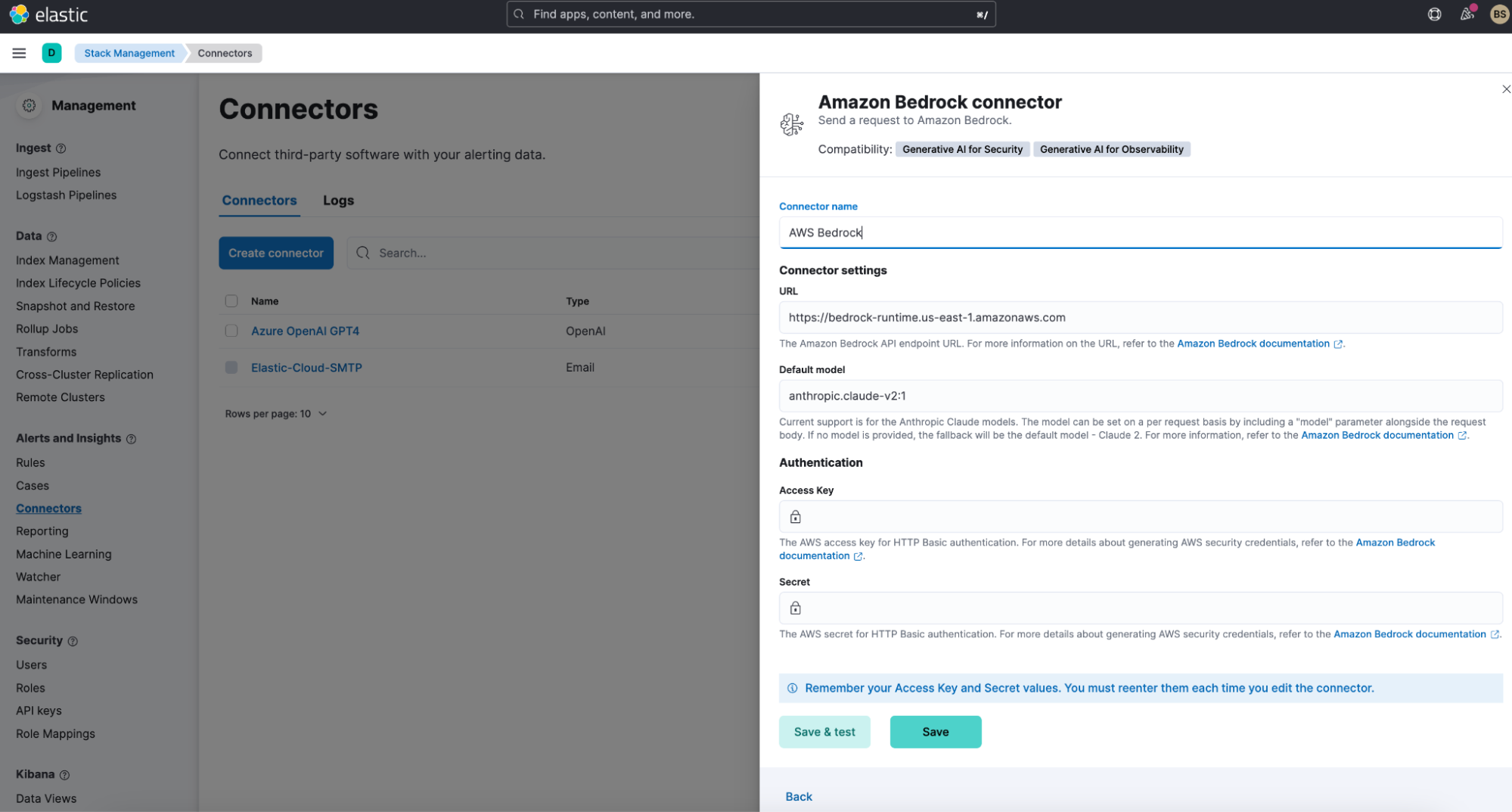
Entry point contextual awareness
editWhen entering AI Assistant chat, it will now understand what was on the screen you entered it from. For 8.13, we’ve added screen context for the SLO list page, the SLO detail page, the alert details page, and the APM service inventory.
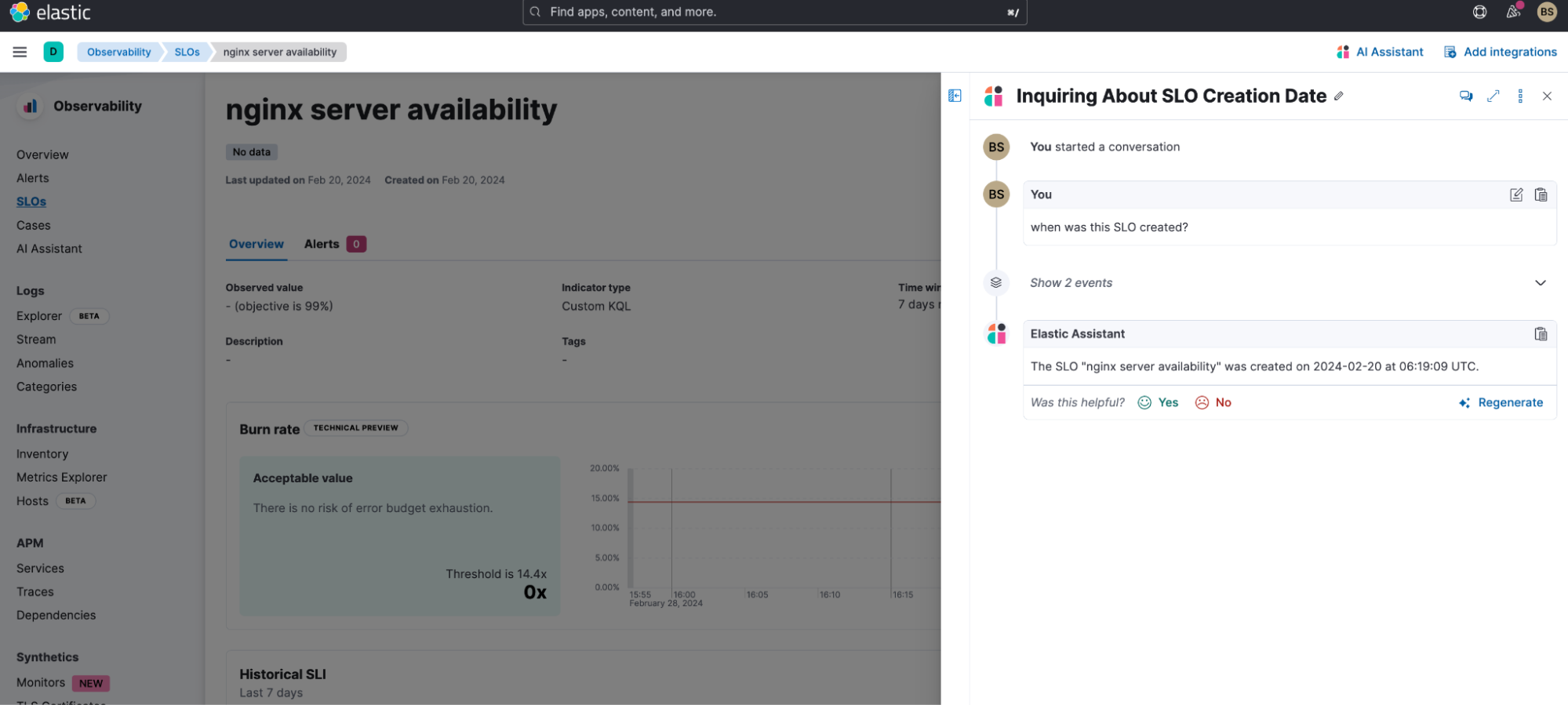
ES|QL editing and visualization (tech preview)
editWhen the AI Assistant responses use ES|QL, you can now do the following:
- See the “Display results” of the ES|QL query
- Visualize the query on the generated ES|QL:
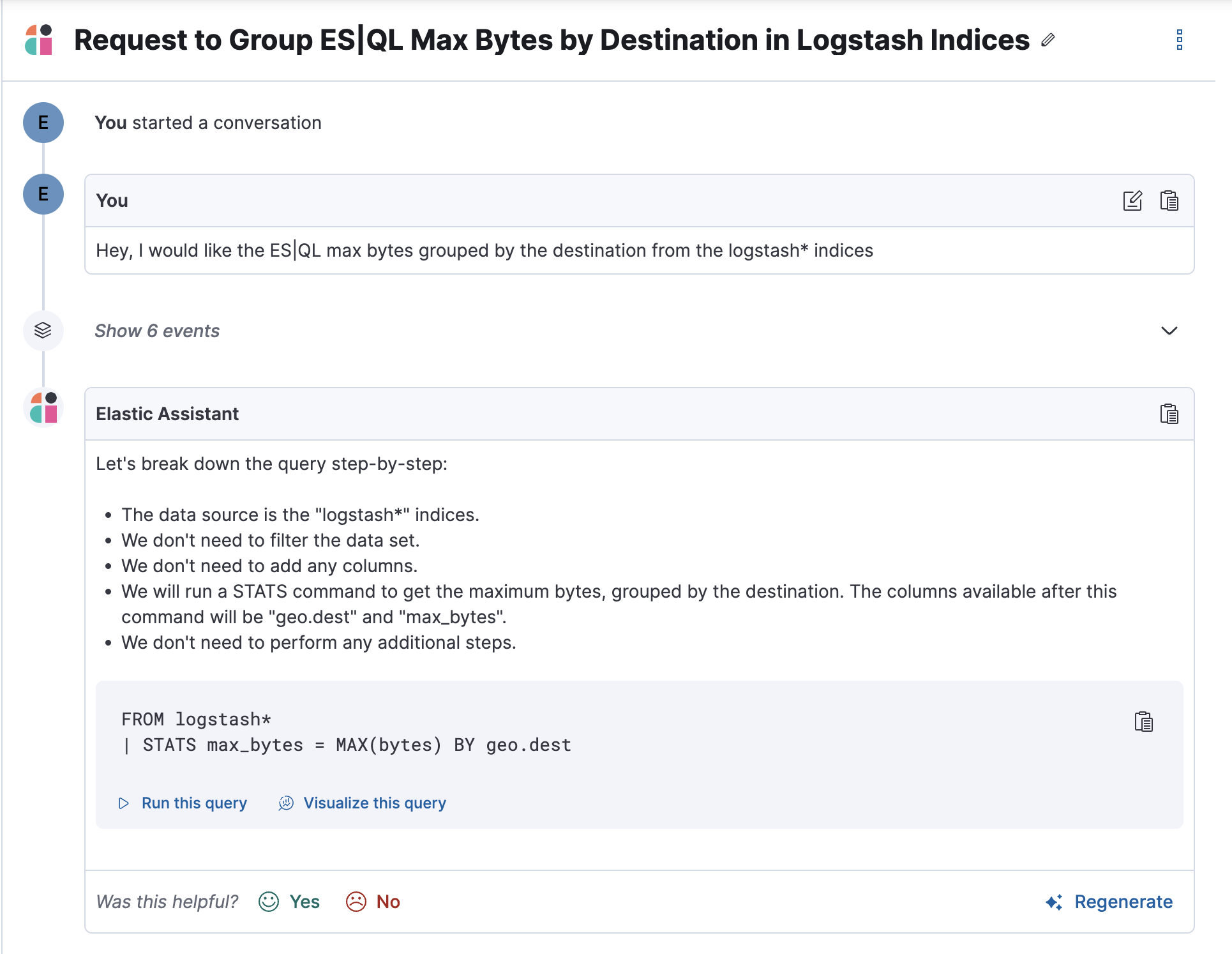
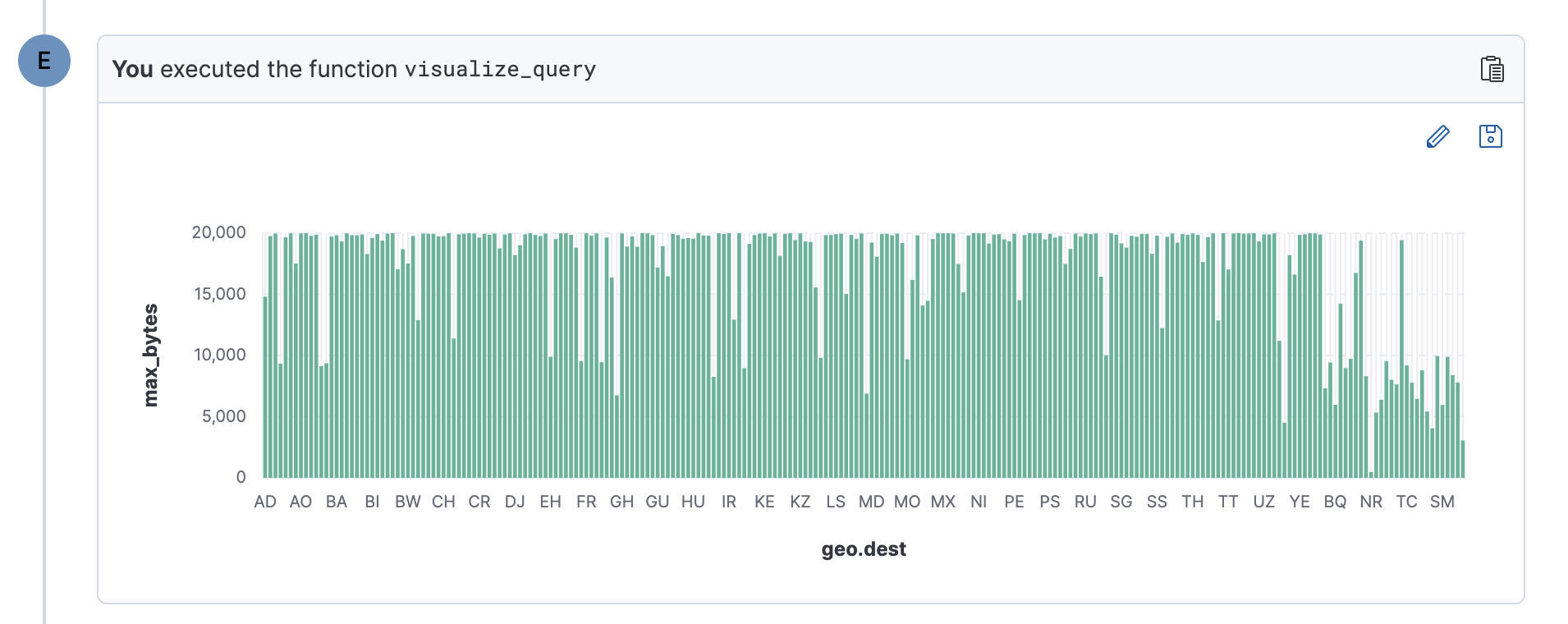
Once you get the Lens chart, you can edit it.
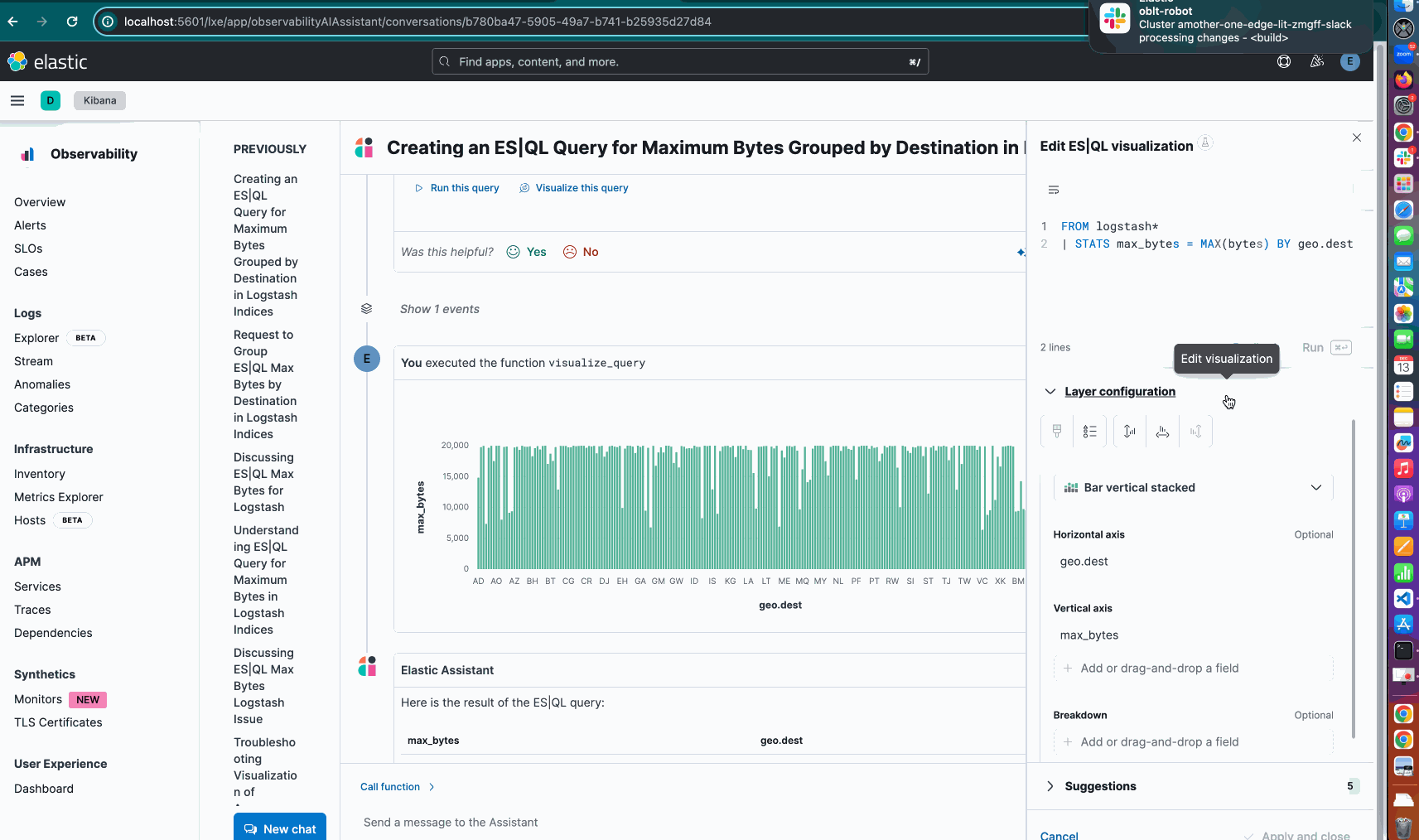
Users can save the ES|QL chart on a dashboard. From there they can continue editing the chart.
SLO enhancements
edit- Ability to group your SLOs by tag, SLI indicator type, or status
- Ability to triage burn rate alerts
Grouping and filtering SLOs
editWe have added the ability to group your SLOs by tag, SLI indicator type, or status. SREs can easily scan these groups for a summary of their performance, including the number of healthy SLOs, unhealthy SLOs, and the worst performing SLO.
SREs also have the ability to apply filters by tag or SLO status or using any field available via search bar.
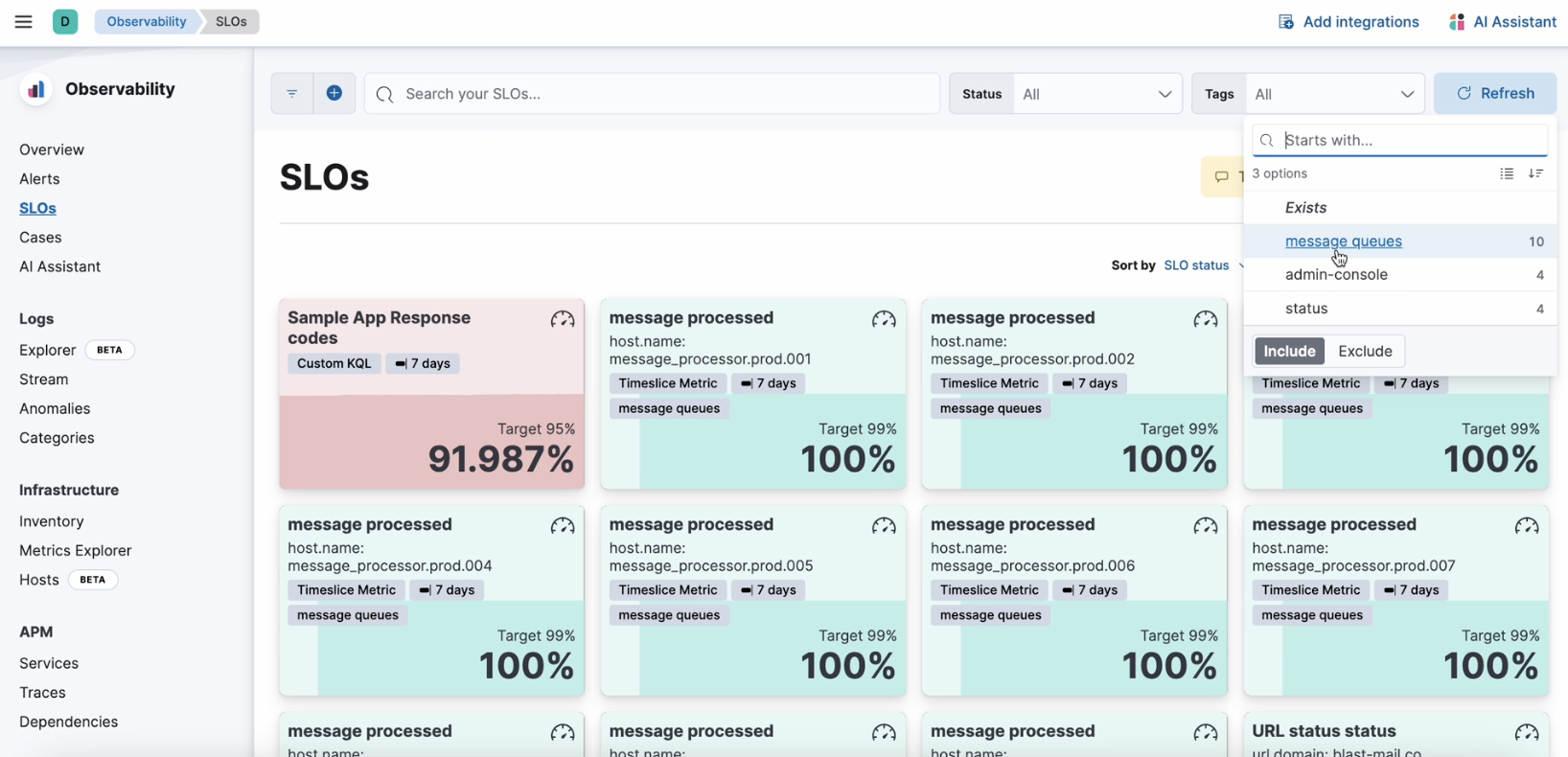
Triage burn rate alerts
editSLO burn rate alerts now have a page to assist with triaging burn rate alerts. This page allows users to get detailed information on the burn rate alert and the history of any other times it has been alerted.
